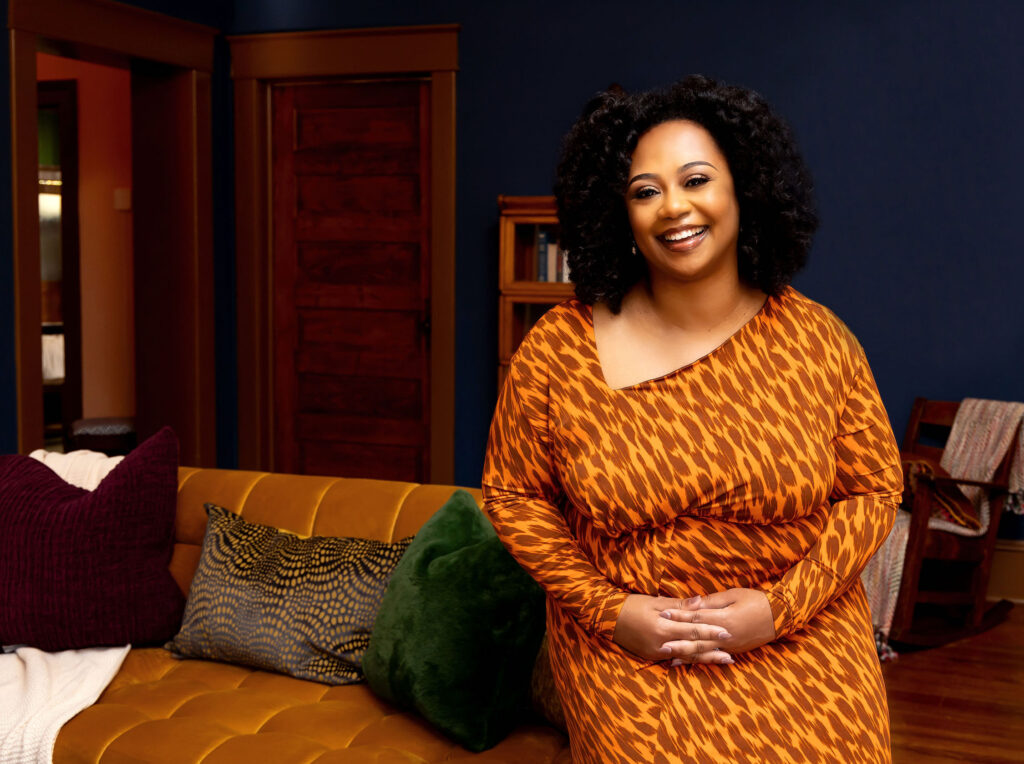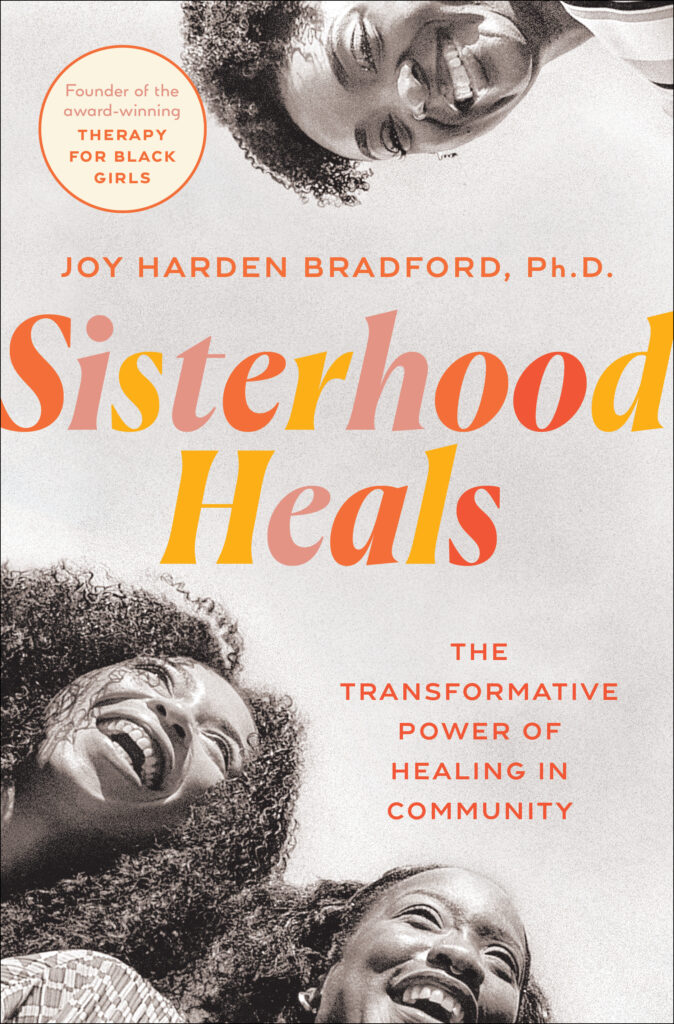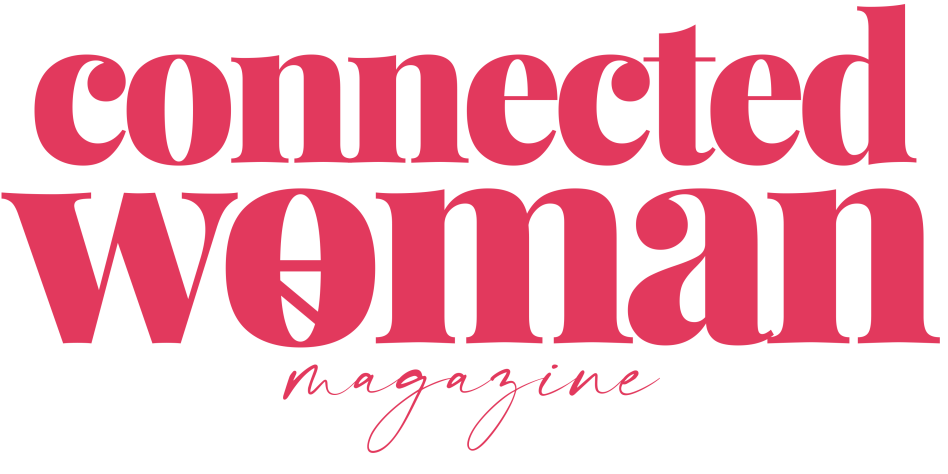
Dr. Joy Harden Bradford, founder of the game changing, Therapy for Black Girls, is a dynamic visionary who has implemented life changing solutions in the mental health arena for black women. Her new book, Sisterhood Heals, is the culmination of a 20-year career of experience and her desire to celebrate the magic of Black sisterhood and the importance of these bonds amongst black women. Let’s meet her…
Before we delve into your book, Sisterhood Heals, let’s touch on how you came to launch Therapy for Black Girls.
The idea for Therapy for Black Girls came to me in 2014 after watching the Black Girls Rock Awards Show on BET. It was incredibly inspiring to see so many Black women celebrating one another across industries and I wanted to capture some of this same energy for Black women related to mental health. I started by blogging on the website and in 2017 added both the therapist directory and podcast. Our mission is to make mental health topics more relevant and accessible for Black women and girls through our programming and offerings.
As a licensed Psychologist, can you share with our readers how you chose the field (or it chose you) and what you learned early and throughout your career, in regard to how the increase in the spotlight on the importance of mental health has improved access to care as well as minimized the stigmas once attached to seeking such care?
I had the opportunity to take a Psychology class while in high school and fell in love with the field. I have always been curious about human behavior and it felt like a field that allowed me to be endlessly curious. However, the history of Psychology is very White and there have been many ways that it has been used in harmful ways against the Black community and other communities of color. It felt important to me to be able to use what I learned to empower my community. One of the things I learned pretty early on is how the stigma related to mental health results in fewer people seeking out services and resources which is why it’s so important for me to meet people where they are to share the information.
You are known for blending mental health topics with real-life and real-time events in order to make them more relatable. I recently saw a young woman attending one of the Beyonce concerts who held a sign that said something like, “PTO was denied, So I quit because they won’t break my soul!”. With women in general dealing with subpar equality, pay, and treatment in the workplace in general, black women, in addition, are constantly tackling even larger and more complex issues in the workplace. What is your opinion on the importance of workplaces incorporating mental health initiatives into diversity programs and into their definition of “work-life balance”.
I think that it’s important for workplaces to incorporate mental health initiatives into their programming but it cannot stop at bringing in a guest speaker twice a year. Workplaces also need to be intentional about how their culture and policies create psychological safety or hostility. Many of us spend the majority of our days either in the office or working from home, it is important to pay attention to how that time either enhances or detracts from our mental health. It was not surprising to me when Black women largely felt a sense of relief when we all were working from home early in the pandemic because the stress of being in a workspace that was demoralizing and not affirming was eliminated.
 Tell our readers about the book and what was the catalyst to you focusing on sisterhood as the glue to making the connections and creating the spaces needed for black women to thrive? What can the reader hope to gain by the time they reach the last page?
Tell our readers about the book and what was the catalyst to you focusing on sisterhood as the glue to making the connections and creating the spaces needed for black women to thrive? What can the reader hope to gain by the time they reach the last page?
Sisterhood Heals is a celebration of the life-saving relationships Black women have with one another and a guide to deepening the relationships. Healing for Black women often happens in a community so I wanted to provide a resource for us to do an even better job of building and sustaining a healthy community. By the end of the book, readers can expect to have a better sense of how they are showing up in their friendships, more confidence in navigating the difficult conversations that can increase intimacy in their friendships, and a roadmap to finding new people to include in their support system.
Get Your Copy of SIsterhood Heals Today
Why does Sisterhood matter, not only when life is “lifing” but when it comes to Black girls and women strengthening and maintaining their mental health?
Loneliness is a growing epidemic in our country. Having solid relationships is vital for not only our mental but also our physical health. Having people in your corner who understand you and who will be there for you in the highs and lows is invaluable. I also think that as we get older we lose touch with our sense of play and sisterhood allows a space to re-engage with being playful, whether that be through game nights, road trips, or good old-fashioned slumber parties.
What advice would you give to the woman feeling like her circle does not pour into her emotionally with the same vigor that she does to them? How can we find the right circle where we can be uplifted instead of feeling abandoned?
I would first ask whether she has been direct in asking for what she needs from her circle. Many times, we are so wrapped up in the idea that people in our lives should be able to read our minds or “they should just know I need help because I’m always there for them,” but that isn’t always the case. We have the greatest chance of getting our needs met, when we clearly ask others to meet them. Now if she has been asking for what she needs and the circle is not stepping up to meet them, then I would say to have a conversation with them expressing how she feels like no one is stepping up and asking them to do better. If they are not able or refuse to, then it’s time for a re-evaluation of the role these people have in her life. It also sounds like an invitation to do some examining of her boundaries. We are often too loose with our boundaries (i.e. overgiving, always being available) and then end up feeling resentful when we find ourselves depleted. This may be a sign that you need to be less available with your time and resources.
I have been heavy this year on protecting my peace and setting boundaries whether at work or at home. It’s not always easy but why should we continue to prioritize our mental wellbeing in order to not only navigate life and increase joy but LIVE?
This feels like a perfect follow-up to the previous question. Boundaries are what allow us to have harmonious relationships with both ourselves and others. It is difficult to feel at peace and to thrive if we’re exhausted and tapped out from over-extending ourselves. Setting boundaries ensures that we have something to give but also plenty left over for ourselves. I think that many of us pride ourselves on being the reliable one or the one that people can turn to in a crisis. But if we over-identify with this, it may leave us feeling as though we have to continue showing up in this way to be needed in our circles. Being helpful should be a part of who you are, but it need not be the entirety of your value in a relationship.
Besides promoting your book, what is up next for you?
Our community has been asking for more in person opportunities to connect and come together to discuss more of the themes present in the book and on the podcast, so my focus now is on planning events that will allow that to happen.
Tell our readers where they can find out more information about you and support.
You can find me @hellodrjoy across social media and you can find all of our resources at therapyforblackgirls.com. And please don’t forget to grab a copy of Sisterhood Heals for you and your girls at sisterhoodheals.com
As an advocate for mental health, how do you self-check yourself to make sure you are operating at your very best? Journaling is one of the best ways to assess how we’re feeling from day to day. It forces us to be still and to reflect which often yields very valuable information. Taking the time before you start your day or as you wrap it up in the evening to jot down how you’re feeling, what you’re grateful for, and what you’re concerned about is a great way to check in with yourself and can be helpful in noticing any patterns that might exist.
And lastly, what do you want your legacy to the mental health platform to be?
I want my legacy to be opening the doors to important mental health conversations and facilitating spaces that allow Black women to be bold, authentic, and vulnerable.
